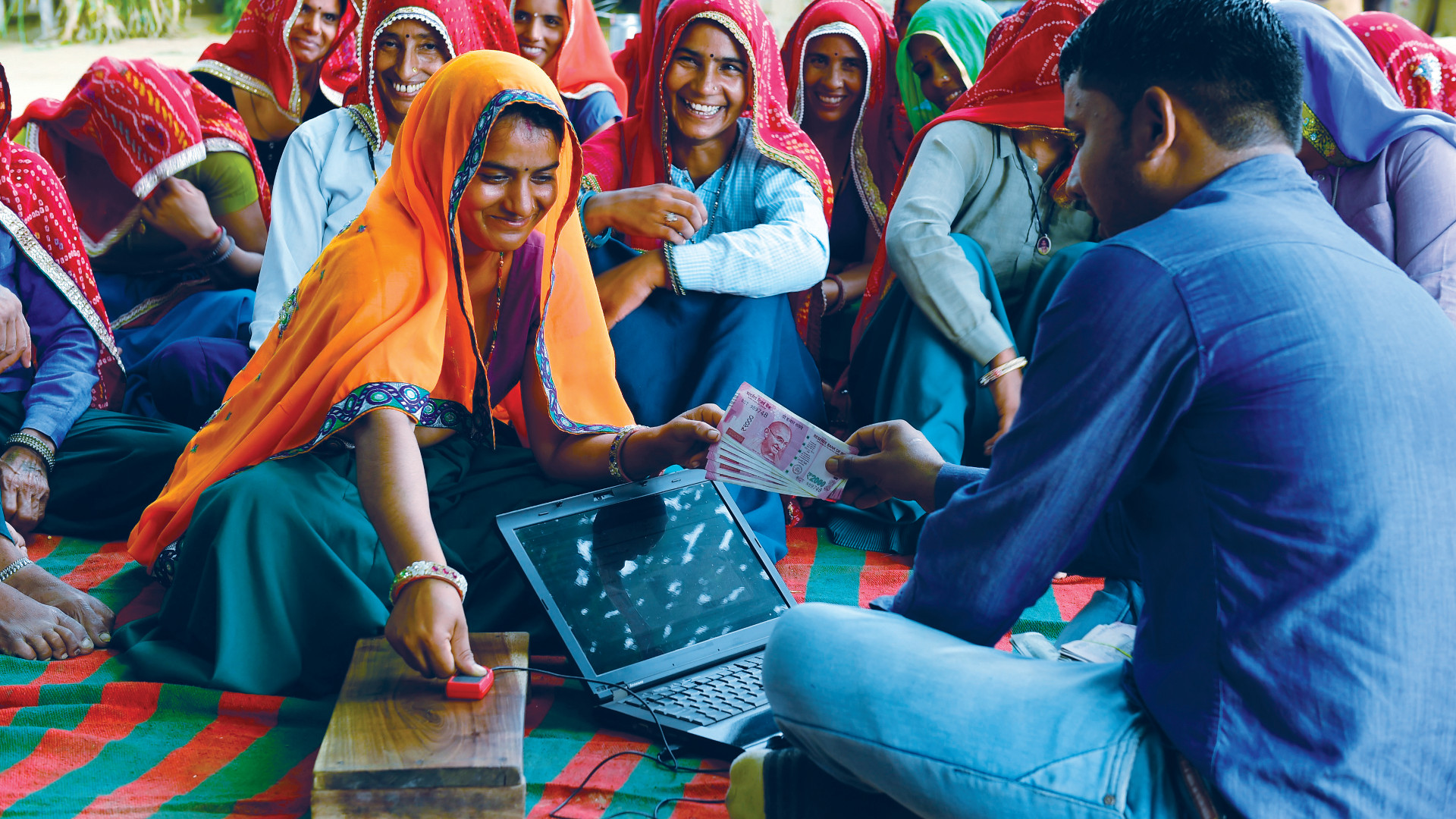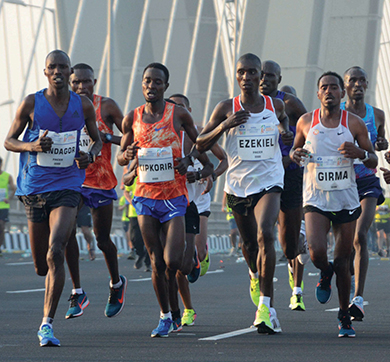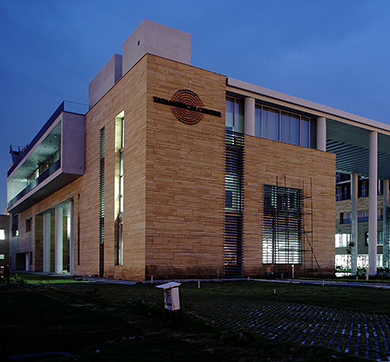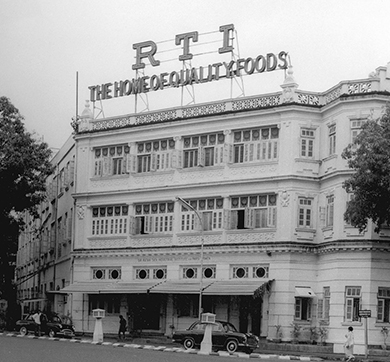March 2018 | 1230 words | 5-minute read
Tata Trusts’ ‘Tata dairy mission’ works with small farmers to promote milk production as a sustainable livelihood option.
Life for Roshni Devi has never been better. In just one year, the 28-year-old dairy farmer from Bhayari village in Alwar, Rajasthan, has earned Rs. 160,000 from selling milk. She has been able to buy an additional cow and a buffalo and is looking to further grow her milk production business. The money brings benefits, among them an enrolment in a private school for her son.
Year-round livelihoods
All this is a result of her joining the Sakhi Mahila Milk Producer Company (MPC). The Sakhi Mahila MPC is one of four dairy companies that were set up as a part of ‘Tata dairy mission’. Under this programme, Tata Trusts established the Dairy Health and Nutrition Initiative India Foundation (DHANII) as a not-for-profit company. The intent behind DHANII and the ‘Tata dairy mission’ is to help milk producers earn more by enhancing their knowledge about milk production, breeding and animal health and nutrition. DHANII aims to enhance the incomes of 34,000 households in 800 villages, by Rs. 24,000 to Rs, 34,000 per annum.
These villages have been selected because they are home to agrarian communities with typically small individual land holdings, poor crop yields and low agricultural incomes. Arun Pandhi, director of programme implementation at Tata Trusts and a director with DHANII, explains the significance of dairy income for small farmers: “About 80% of rural households in India have less than 2 hectares of land. The farmers only get paid during crop harvests when they sell their produce, which on average is just twice a year.” For these small and marginal farmers, rearing livestock serves as a sustainable source of income. “Dairy farming is the most common animal husbandry activity in our country,” says Mr Pandhi. “It is also the only farm-allied activity for a rural household to get any kind of regular cash income. About 15-30% of a rural household’s income comes from livestock-related activity.”
Market connections
Support for dairy development was a natural progression for the Trusts. Rural livelihood development has been a key engagement area for the Trusts for a number of decades, with programmes spread across farming, irrigation, water conservation, fisheries, marketing of produce and more. “If we want an extension of agriculture projects to head towards some level of sustainability, it is necessary to stabilise incomes at the household level,” says Mr Pandhi. “In India, dairy has been the easier option to support a small rural household.”
DHANII will improve livelihoods by linking milk producers to the market through MPCs or dairies. In 2016, DHANII supported the establishment of four MPCs, including Sakhi Mahila in Alwar. The other MPCs are Asha Mahila in Pali (Rajasthan), Shwetdhara Mahila in Pratapgarh (Uttar Pradesh) and Ruhaanii in Mansa (Punjab). These MPCs have been set up with technical support from the National Dairy Development Board’s Dairy Services (NDS). In addition, about 85 villages that come under the Trusts’ intervention through the Coastal Salinity Prevention Cell are being linked with the milk procurement system of Maahi in Gujarat, an existing MPC promoted by NDS.
The MPCs help organise farmers and play an important role in ensuring fair prices for the milk they supply. The dairies are equipped with the latest technology and infrastructure and have assured market linkages. Milk brought by the farmers is collected at a ‘milk pooling point’ in each village. Dairy-appointed sahayaks (assistants) stationed at these points use tamper-proof equipment to test the milk deposited by farmers, who get paid based on the quality of their produce.
Increasing production
“Farmers get quality tests done on their milk, which isn’t usually available in such areas,” says Baljinder Singh Saini, area manager (dairy) with Tata Trusts. “This transparent system also ensures that they get a fair price for their milk.” Says Mr Pandhi about the Trusts’ engagement with the farmers: “Through our associate organisations, we work with the farmer base to generate an adequate quantity of milk. Since this is a business, the MPCs have to get certain volumes of milk from villages for them to be viable. This means that they are selective about the villages they include. We work with farmers in various ways so that villages that are being left out can also be incorporated in due course. NDS comes on board with inputs on how to set up a MPC, how to run the unit and how to sell the milk.” The MPCs also provide inputs that are crucial for better animal health and nutrition, which in turn lead to increased milk yields for dairy farmers. This is achieved through a ‘ration balancing programme’, which ensures that the animals receive the right kind of nutrition.
“Most fodder doesn’t contain the minerals required to keep the animals healthy and productive,” says Mr Saini. “Providing mineral mixtures with the animal feed has not only improved the quality of milk, but has also reduced the inter-calving period.” Milk producers also benefit from inputs on artificial insemination, infertility management, breed improvement practices and other farm advisory services. Bimla Devi, a dairy farmer from Jodhpura village in Rajasthan, has seen the difference these services can make. She attended infertility management camps organised by the Sakhi Mahila MPC and NDS, which encouraged her to opt for artificial insemination over natural breeding methods to secure better results. The input services and programmes are closely supervised by teams from DHANII and NDS. The teams assist with veterinary services, help in the purchase of cattle through self-help groups, and work with producers to ensure availability of fodder. Since its launch in 2016, DHANII has covered 485 villages in four states: Rajasthan, Punjab, Uttar Pradesh and Gujarat. Dairy farmers have seen an improvement in the quantity and quality of milk they sell, with the 13,000+ members contributing about 67,800 litres of milk every day. For instance, under their guidance, Roshni Devi now sells 15-20 litres of milk a day, up from just 2 litres earlier. Her realisations from the MPC too have gone up substantially, from 25-30 per litre to 40-45 per litre.
Stable and able
Being a member of the MPC has also meant more stability, as Mr Saini explains: “The prices that the dairy farmers receive have stabilised since they are now based on the quality of the milk. Even if there is a seasonal variation in milk production, the prices don’t change as they get paid based on quality.” Thanks to digitalisation, the farmers directly receive payments in their bank accounts. Another achievement has been the availability of doorstep banking in remote areas. MPCs in three locations have tied up with a private bank, whose representatives go to the milk pooling points so that the farmers can withdraw money when they need to.
Success with the programme has bolstered the expansion plans of the ‘Tata dairy mission’. “We will double our capacity in Alwar and Pali districts of Rajasthan and cover a further 200 villages in the state,” says Mr Pandhi. “Also, a new producer company will be set up in Yavatmal district in Maharashtra and this will cover 200 villages.”
For Roshni Devi and hundreds of small farmers like her, the benefits of being a part of the ‘Tata dairy mission’ have been far more than monetary. They can now afford a better quality of life for themselves and their families, and can hope for a better future.
—Priyanka Hosangadi













